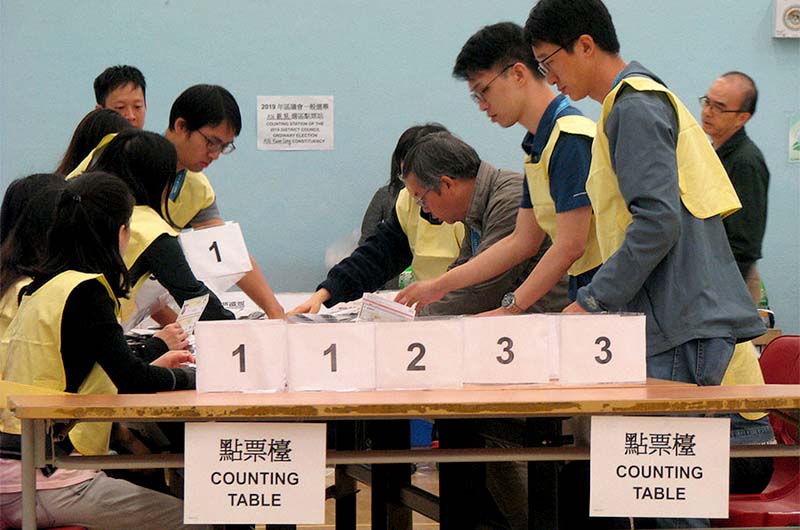Breaking from six months of violent anti-government unrest, Hong Kong welcomed democracy on Tuesday. Anti-government protest has plunged the former British colony into its biggest political crisis in decades.
On Tuesday Hong Kong’s leader Carrie Lam acknowledged that the voters turnout in district elections shows dissatisfaction towards the government. Along with this, she thanked citizens for voting peacefully despite a relatively volatile environment.
Lam spoke a day after results were declared where democratic candidates secured almost 90% of 452 district council seats in Sunday’s elections. This has resulted in a landslide victory in polls. The victory was widely seen as a barometer of support for the Beijing-backed leader.
Hong Kong welcomed democracy after six months of violent anti-government unrest. Importantly, this has plunged the former British colony into its biggest political crisis in decades.
Lam underscored the importance of non-violence. She said that the peaceful weekend was not just for the elections. But a signal that people in the Chinese-ruled city wanted an end to violence.
Since June, protests have sprung up on an almost daily basis. This used to end with flash mobs and gathering with little or no notice. At times authorities were forced to shut businesses, schools and even the international airport.
The violence had escalated up to last week. Protesters impel petrol bombs and firing arrows at police. In retaliation, authorities responded with tear gas and rubber bullets.
Time and again China denies interfering in the internal matters of Hong Kong. In this regard, China said that it is committed to the “one country, two systems” formula which was put in place at that time. Significantly, police had also shown restraint in the face of potentially deadly attacks, said an official.
The elections paved way for the democrats, with a record of nearly 3 million voters. This poses a conundrum for Beijing and piles pressure on Lam, who is facing renewed calls to step down. Importantly, the democrats took control over 17 out of 18 district councils.









